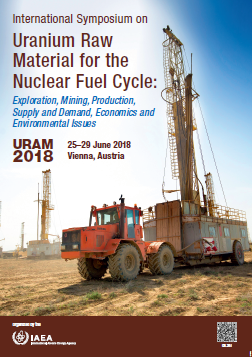Speaker
Dr
Andy Wilde
(Deep Yellow Ltd)
Description
Results of quantitative mineral resource assessment (QMRA) and mineral prospectivity analysis (MPA) for metasomatite-type (albitite-type) uranium deposits in the Mount Isa region of Queensland, Australia, are discussed. The study illustrates the process of using a geological model and various input data to define areas prospective for undiscovered uranium resources. The approach was fundamentally knowledge-driven and required use of geological judgment in choosing appropriate input layers, in assigning fuzzy membership values and in deciding the most appropriate methods of combining the input layers. The prospectivity mapping was successful in that known deposits, particularly larger examples, fall within pixels categorized as highly prospective. Ultimately, however, the success of the approach will need to be judged by the success of ongoing mineral exploration in areas deemed to have prospectivity.
A comparison of regional and detailed studies illustrates the scale dependency of the input parameters, with some input layers being appropriate for the regional analysis but not for the more detailed one. Prospectivity maps generated by the fuzzy gamma and vectorial fuzzy logic techniques are similar. The latter technique may, however, provide better discrimination of areas prospective for large (rather than medium or small) deposits. A further benefit of this technique is that there is no need to produce intermediate combinations of input layers and no necessity for a gamma parameter. This results in a simplified process and makes subsequent applications of the technique more repeatable and comparable.
This work also used MPA as the basis for defining a prospective tract which was the input for QMRA. A global regression model of total ore tonnage estimated undiscovered ore tonnage for the entire Mt Isa North tract at 83 Mt.
| Country or International Organization | Australia |
|---|
Author
Dr
Andy Wilde
(Deep Yellow Ltd)
Co-author
Dr
Matthew Bruce
(Thunderbird Metals)

